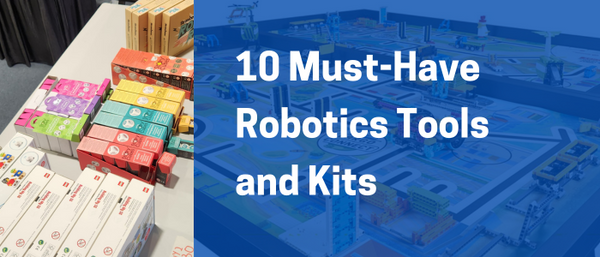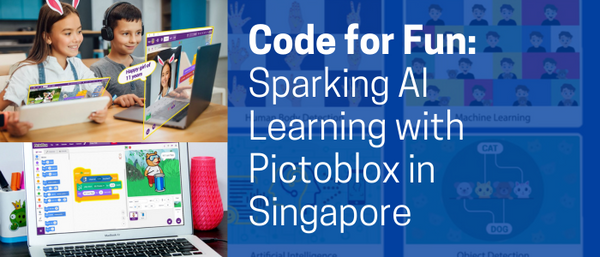如何从小成为人工智能工程师(4 种方法)
帮助孩子成为 AI 工程师的 4 种方法
- 打下坚实的数学基础
- 尽早探索编程基础知识
- 通过游戏和应用程序与人工智能互动
- 寻找教育资源和社区
1. 打下坚实的数学基础
对于有志于成为 AI 工程师的人来说,打下坚实的数学基础至关重要。学校往往注重死记硬背,而不是真正的理解,导致高级学习所需的技能存在差距。东北大学的“微积分桥梁”等课程可以帮助高中生做好准备,让他们超越基础知识。可汗学院和 YouTube 等免费在线资源提供了快速掌握复杂概念的替代方法。此外,社区大学课程可以通过一对一辅导课程提供个性化支持。当与 AI 工程中的现实问题联系起来时,学生会发现数学更容易、更有吸引力。将数学视为实用和适用有助于实现这一点。
2. 尽早探索编程基础知识
尽早学习编程基础知识是成为 AI 工程师的关键。了解 Python 等语言有助于培养解决问题的能力和逻辑思维。这些对于开发 AI 应用程序中使用的算法至关重要。根据美国劳工统计局的数据,从 2021 年到 2031 年,这一类别的职位将增长 21%,这凸显了高需求。此外,谷歌和苹果等公司聘请了具有强大编码背景的 AI 专家。通过在年轻时掌握基础知识,人们可以在以后的复杂主题(如机器学习模型和数据结构)上领先一步,而这些是成为 AI 工程师的高级阶段的关键要素。
阅读有关使用Pictoblox和LEGO® Education进行编程的更多信息
3. 通过游戏和应用程序与人工智能互动
通过专为儿童设计的游戏和应用程序与人工智能互动。这些工具以易于理解的方式向年轻人介绍复杂的概念。例如,许多编码应用程序允许儿童使用基本的机器学习原理构建和训练简单的人工智能模型或创建有趣的游戏。动手学习有助于巩固这些技能,同时培养创造力和解决问题的能力。通过提供适合年龄的平台来鼓励实验,他们可以在其中测试他们的设计、进行调整并立即看到结果。这种互动方式可以培养对技术的好奇心,并为未来的工程师建立必不可少的基础知识。
4. 寻找教育资源和社区
- 对于年轻的人工智能爱好者来说,寻找教育资源和社区是关键。
- 加入 Coursera 或 Khan Academy 等在线平台,向专家学习。参与 Reddit 的 r/MachineLearning 等论坛,自由交流想法。
- 参加当地的编码俱乐部或研讨会;它们提供人工智能在健康监测和个人助理中的实际应用的实践经验。
- 通过为开源项目做出贡献与 GitHub 上的同行互动,这是培养实践技能和提高解决问题能力的好方法。
- 通过这些渠道建立联系还可以让您找到导师,他们可以有效地指导您的学习之旅,同时将道德考虑放在首位。
- 从小成为 AI 工程师始于好奇心。探索 Python 等基本编码语言,为理解算法奠定基础。
- 参与在线教程和平台,为年轻学习者提供量身定制的初学者课程。
- 参加STEM 计划也可以激发兴趣并提供实践经验。
- 有关机器学习的书籍、Duck Learning 的机器人套件或简单的 DIY 项目可以早期培养技能。
- 与有相同兴趣的同行合作,建立团队合作能力,同时通过相关博客和视频了解最新的技术趋势。
参考:
https://ai Degreeguide.com/blog/can-i-work-in-ai-if-math-isnt-my-strong-suit/
https://emeritus.org/blog/ai-ml-how-to-become-an-ai-engineer/
https://autogpt.net/your-ultimate-guide-to-ai-for-kids/
https://swe.org/magazine/career-pathways-spring-24/



